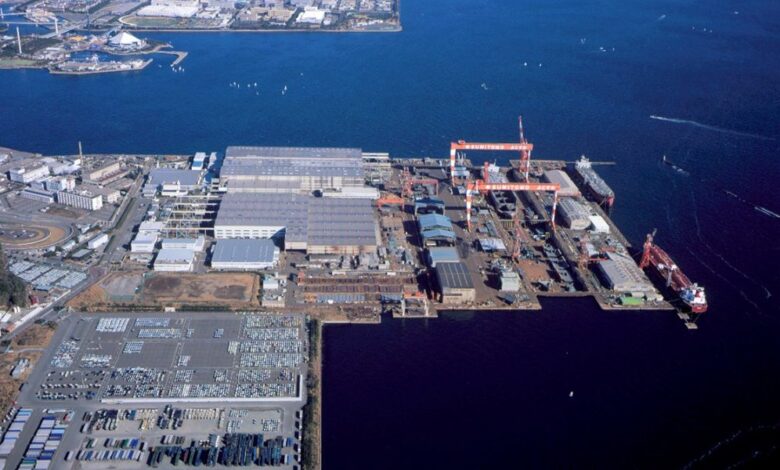
Japanese shipyard Sumitomo Heavy Industries Marine & Engineering has decided to stop taking new orders for commercial vessels.
The yard in Yokosuka, best known for its aframax tankers, will exit the business after completing its current newbuilding backlog.
The parent company, Sumitomo Heavy Industries, said it has found it challenging to sustain the shipbuilding business despite having implemented various measures, including limiting the number of vessel orders it accepted and overhauling its shipbuilding system.
Japanese shipbuilders have been up against intense rivalry from shipyards in China and South Korea that dominate the orderbook for ships to be delivered in the coming years.
Anticipating the necessity to address the rising prices of steel and other materials and equipment, along with significant fluctuations in vessel prices and persisting intense competition with overseas companies due to an increasing supply-demand gap, we have extensively deliberated on the future of the shipbuilding business. As a result, the company has decided not to accept new orders for general commercial vessels from FY2024 onwards, Sumitomo said in a statement.
After-sales service for the previously constructed vessels and ship repair business will continue. The company added that it plans to advance the commercialisation of offshore wind foundations along with related vessels in the renewables sector.
Sumitomo’s shipbuilding business traces its roots back to 1879 with the establishment of Uraga Senkyo Corporation. Sumitomo Heavy Industries Marine & Engineering was spun off from Sumitomo Heavy Industries in 2003. The yard has built more than 100 aframaxes.
Japan ranked as the world’s largest shipbuilding nation at the start of the century, but has seen its market share massively erode, unable to compete on price with rivals in East Asia with many famous yards merging or exiting the business entirely.
A report published by Danish Ship Finance in November highlighted how Japanese shipbuilders are struggling to compete with yard utilisation reported as low. 47 Japanese yards control 17% of global yard capacity – accounting for 10m cgt – but had only attracted 10% of orders, according to the Danish data from three months ago.

This is really sad. I think re-invention would have done the trick.